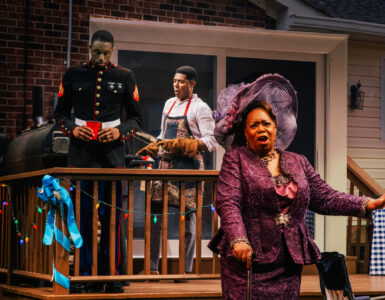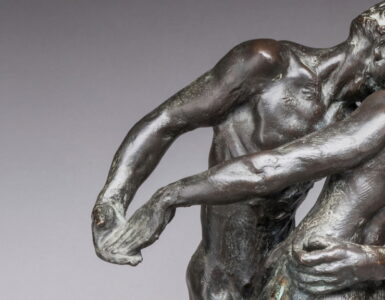The heist movie that started an enduring trend — Rififi — is being revived. Rialto Pictures is theatrically re-releasing Jules Dassin’s seminal 50’s heist film, set on the streets of Paris. Rififi will play September 4 — 10 in Los Angeles at the Laemmle Royal, for the first time in DCP. A theatrical run in New York is also happening, Sept 2 — Sept 8.
The great thing about Rififi is that it most definitely still holds up. Set in the seedy underworld of crims and nightclubs, also on the (curiously unpopulated) streets of Paris, the moody black and white movie features tough-as-nails and sinister characters, mostly middle aged with craggy faces. Their dames are shapely and pretty housewives or racy singer / gold digger types. The dialogue exchanges are of the hard-boiled variety. There’s lots of old-fashioned slang in there, too, if you speak a little French — the movie is subtitled.
The story is a classic one – Le Stephanois is out after five years behind bars for stoically taking some rap and not squealing. His old mates suggest a smash and grab jewelry job but he proposes a more ambitious heist. It involves assembling a crew that includes a safe cracking expert plus a water-tight plan to disable a sophisticated alarm system. What follows is a brilliant and taut twenty-minute heist sequence that is executed to perfection, notable for its absence of dialogue and music as the crims communicate wordlessly. There’s even the ingenious use of an umbrella. The heist happens at the mid-point of the movie, and, of course, things do not go so smoothly thereafter…
Backstory:
This classic French film by celebrated director Jules Dassin was a sensation upon release in 1955, and is widely regarded as one of the early heist films in cinema history. It has influenced countless generations of filmmakers, including Quentin Tarantino, Stanley Kubrick, and many others.Director Jules Dassin (1911 – 2008) began his filmmaking career in the early 1940s and is known for his hits Brute Force (1947), The Naked City (1948), and Thieves’ Highway (1949). His career later took a hit when he was blacklisted during the McCarthy era, and a subsequent move to France helped revive his career and was the setting for his most acclaimed film, Rififi (1955).
RIFIFI (ri-fí-fi) n. French argot. 1. Quarrel, rumble, free-for-all, open hostilities between individuals or gangs, rough-and-tumble confrontation between two or more individuals. 2. A tense and chaotic situation involving violent confrontations between parties.
Etym.: probably derived from rif “combat,” Italian argot ruffo “fire,” Latin rufus “red.” Since 1942: Paris underworld slang coined by Auguste Le Breton during a gangland clash in 1942 and popularized in his novel “Du rififi chez les hommes” (Paris: Gallimard, 1953) and the film directed by Jules Dassin (1955). The enormous popularity of that movie led to the use of “rififi” in the titles of several unrelated thrillers.
Do not miss the revival of this classic drama.
Rififi
L.A.
September 4 — 10, 2015
Laemmle Royal
More info here.
NYC
September 2 — Sept 8, 2015
Film Forum
More info here.







